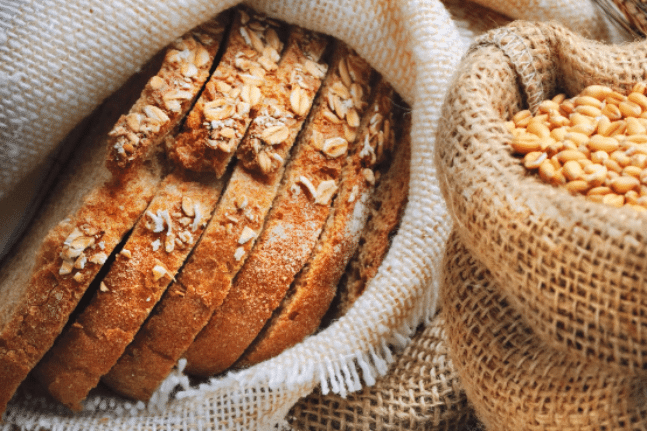The link between B vitamins and obesity
Many may seriously question the veracity of the information I’m about to present to you, as might you. A recent research article in the World Journal of Diabetes suggests that, rather than our insatiable appetites for food or lack of exercise, the real reason for the recent upsurge in the global obesity epidemic might have more to do with the extra B vitamins we’re getting as a result of food fortification, our year-round consumption of fruit and veg that overrides seasonality and, for good measure, our attachment to supplementing with vitamins just in case our diets are deficient.
Let me start by acknowledging that I religiously take B vitamins every day and prescribe them for my patients. The notion that this ostensibly healthy and wise practice could be making us fat is decidedly disturbing and counterintuitive. After all, B vitamins are the essential nutrients our cells use to provide us with daily energy. Our brains need B vitamins to help us remember and keep us focused and mentally sharp.
We negotiate the stresses of an ever-demanding existence by harnessing a stable and calm emotional response facilitated by the presence of B vitamins. The bottom line is, B vitamins are the essential lubrication that allows us to funnel glucose and fat into a vital fuel source that powers our batteries and invigorates our day. How could these life-sustaining substances be corralled to generate toxic mounds of fat that threaten our survival?
As it turns out, one of the B vitamins’ subsidiary functions is to convert carbohydrates into fat. So B vitamins are schizophrenic. They might help us to use fats to generate energy, but they are also happy to galvanise the process that morphs excess carbohydrate into fat. Herein lies the problem. B vitamins are now added to our breads and cereals as well as a whole bunch of wheat-based products like muffins, biscuits and cakes. The choice is being taken out of our hands. We are getting an extra hit of B vitamins whether we need them or not.
It might simply be coincidental that burgeoning niacin consumption appears to dovetail into a hike in obesity.
The other part of the problem is our fondness for eating refined carbohydrates such as chocolate, sweet biscuits, pastries, lollies and fruits that are sugar rich — the so-called high-GI foods. Since these foods lead to rapid highs and lows in blood sugar levels, we are compelled by forces that seem beyond our control to eat these in abundance.
Combine an armada of carbohydrates with an army of B vitamins that are locked and loaded, and you have a program for recruiting an extensive assembly of fat cells. Our food choices might be injudicious, but it is the presence of B vitamins that is propelling us into the abyss of obesity, claim the research scientists.
To prove this point, the authors of this study go on to demonstrate how obesity statistics vaulted into the stratosphere once B vitamins were added to foods. Specifically targeting niacin or vitamin B3, the research indicates that, as Americans started to consume more niacin, rates of obesity dramatically increased. Conversely, countries like Finland, Norway and France, where flour fortification with vitamins B1, B2 and niacin were not mandated, experienced much lower childhood obesity rates compared with the US.
The problem with this sort of evidence is that it’s epidemiological. In other words, it’s looking at major statistical events in populations and trying to draw conclusions from possibly isolated associations that then assume causation. In other words, it might simply be coincidental that burgeoning niacin consumption appears to dovetail into a hike in obesity.
The only way we are going to discover if niacin actually causes obesity is to construct an experiment whereby one group is given niacin and the other a placebo and then to observe whether this intervention leads to weight gain. In fact, a German study has done just that, examining the effects of niacin supplementation on fat cell status in a group of patients with high blood sugar levels. What they found was the polar opposite of the epidemiological evidence linking niacin with obesity.
The fat cells of the participants receiving niacin actually shrank in size; insulin, the hormone responsible for driving glucose or sugar into cells where it can be used to manufacture energy, operated more efficiently and cholesterol levels went down.
Rats given niacin showed similar benefits by using this vitamin to burn fat rather than let it accrue. All of which suggests that niacin might not be the primary instigator of weight gain and that the epidemiological evidence might be purely coincidental rather than causative.
The pièce de résistance is presented at the end of the article where the research scientists concede that the levels of B vitamins found in fortified foods, which are consumed by most of us, might be sufficient to promote weight gain but that excess amounts of B vitamins, found in multivitamin supplements, might even lead to weight loss. They cite research conducted in the US and Canada showing that weight loss becomes easier and hunger lessens when multivitamins are added to the program.
What is the take-home message? For those consuming any flour-based products who are still finding it difficult to lose weight, hidden B vitamins might be the underlying culprits. For the supplementers, let’s hope we’re getting value for our investment rather than an expanding waistline.








